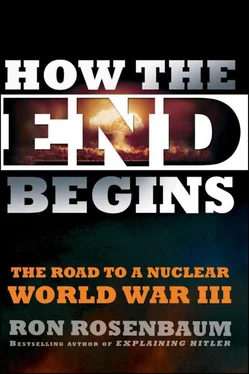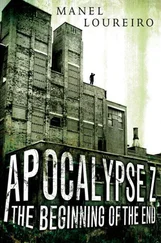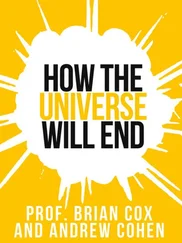The major general sought to minimize the possibility of a large-scale great power nuclear confrontation version of the problem in the post–Cold War era.
“What is the purpose, what is the advantage being sought in a great power attacking another great power?” he asked.
“It’s totally illogical, I agree, but there are madmen and also we live in an age of suicidal martyrdom,” I said.
“Sure, but then you’ve got to change the scenario,” he said.
“Well let’s go back to the suicidal madman,” I said, thinking of Kim Jong-il of North Korea.
“Well that’s too hard for me,” he said, sounding a little hostile.
“You never war-gamed that?” I asked.
“Well we war-gamed it and then, unfortunately, I think we stopped the war game as soon as there was an exchange. And there’s typically an exchange.” Meaning a nuclear one.
“Simultaneous?”
“No,” he said. “The big debate is, do you wait? Wait and shoot or do you shoot while they’re en route? But we stopped the war games. Now we’re starting to get more aggressive in war games. To really work through the geopolitical consequences.”
I think what he meant by being “more aggressive in war games” was carrying them through to the bitter end, but I must admit thinking to myself: isn’t it a little late in the game for all that?
General Alston is all about improving the war games, though: “Bring in real policymakers. Typically not the guy in the job but the guy who had the job. I think our thinking needs to be more fresh. It needs to be more integrated in how you try to get through this.”
Wait a minute, I found myself thinking to myself. I’m talking to the Pentagon’s assistant chief of staff, Strategic Deterrence and Nuclear Integration Headquarters, and he’s telling me they stopped the war games before contemplating the calculus of retaliation? They have to make the war games more aggressive. What kind of effete, namby-pamby nuclear war games have been going on up until now?
Then he said: “In my job I have no propensity for response in kind.”
He repeats: “In my experience I have no propensity for a kneejerk response in kind. They achieved their objective, what would be our objective in our reply?”
I felt a little uncomfortable. My badge said “journalist.” I had introduced myself as writing a book on nuclear questions. I was holding up my tape recorder. And yet here was one of the Pentagon’s top nuclear people rather blithely telling me that if he had his druthers he wouldn’t retaliate. At least “in kind.”
Not with nukes, at least. He would retaliate with shame. He would show the world our injuries. Or was he saying we wouldn’t retaliate immediately, we would first prepare the groundwork, establish the moral high ground—and unleash the dogs of cable TV?
“It could be in this day and age with cable TV with fantastic transmission and all this stuff, if there was a way, and there is a way, to collect every piece of information, if we could project out there that this attack was an unprovoked attack. So that there’s such world attention on how the injured… the United States intends to respond, but there is a great deal of extraordinarily difficult decisions and there’s got to be cases for alternative decisions other than just nukin’ ’em back.
“With such world support, why would the United States take a course of action A, B, C? So I think that you just can’t uncomplicate this.”
True, you can’t decide until you know the specifics. But I found it difficult to uncomplicate his answer. The cable TV offensive would substitute for “just nukin’ ’em back”?
Right, sic Fox News on the attacker. That would show them! And Olberman: Worst Country in the World! That would hurt. So it would be part of the retaliatory strategy, a media offensive to lay the groundwork for the genocide to come? Or the stiff U.N. resolutions condemning the attack?
Things got a little testy between the general and me when I sought to lead up to the “ambiguities of warning” question and we started to discuss what I called the “ride-out doctrine.” Do we have enough confidence in the hardening of our missile silos so that we can adopt a launch on attack alert posture? “Launch on attack” means we don’t have to rely on dual phenomenology warnings with their risk of triggering a mistaken response. And we believe that enough of our missiles would survive attacks on our silos for us to retaliate “in kind.” And so we ride out an attack and then assess its damage and our surviving assets and what to target for retaliation. We avoid a launch on warning with its risk of mistakenly starting a nuclear war based on false pixels. Our official policy had been the ride-out. [115]
So I decided to ask the general: “Are we still on a ride-out doctrine, in other words we wait till we hit to return fire?” That seemed to be the implication of his cable TV offensive.
“I don’t know what doctrine you’re talking about,” he said.
I was momentarily stunned. It’s pretty common parlance in nuclear circles.
“By ride-out, I mean launch on attack,” I said, not just on warning.
“I have never felt, I mean there is no doctrine that rides out or preempts or any of that. In fact I think there’s ambiguity. That’s the term.”
“So you can’t answer the question is what you’re saying,” meaning for security reasons. He seemed to take it the wrong way.
“Well I don’t think you’ve asked a good question.”
“What would be a good one?” I asked. “How about this: there’s an assessment conference, dual phenomenology says we’re in a use it or lose it situation…”
“Well we have a balanced triad, you know, to the point that what you’ll do is certainly lose a part of your force but we have distributed that risk across these varied capabilities.” What he means is that we are not necessarily in a use it or lose it situation because we have nukes attached to our submarines and bombers. He says, “But I understand your scenario.”
I was glad to hear we were on the same page, at least in some respects. Frankly I think he knew exactly what ride-out was, but didn’t want to erase the ambiguity about whether we would be reluctant to launch on warning.
I spent the rest of the day, indeed much of the rest of the conference, buttonholing leading nuclear figures of this and other nations with that same forbidden question: what happens if deterrence fails and you have to decide whether to kill millions of innocent civilians because you threatened to? None would foreswear genocidal retaliation.
My favorite answer came from the Chinese representative, Senior Colonel Yao Yunzhu, who was described in the program as having been “awarded the title of ‘March 8th Red Banner’ and in 2006 was nominated as a candidate for ‘China’s Sixth Annual Top Ten Excellent Women.’” [116]When I asked Colonel Yao what would happen if deterrence failed her nation, she smiled sweetly and said, “Deterrence will not fail.” [117]
But the top U.S. nuclear commander was not as serene about it all as the excellent woman from China. It was just before the Happy Hour of the first day that I finally cornered General Chilton, the head of STRATCOM.
Actually I didn’t corner him. He was standing in the long corridor of the Qwest Center that linked the ballroom where the panels had been held and the Happy Hour bar set up. Someone was bending his ear but at last I had my chance. At last I got to The Man. The Supreme Nuclear Commander. General Chilton.
I moved in, introduced myself and asked him The Question:
“What if deterrence fails, we are attacked deliberately by a peer power or a near–peer power. Is there any point in retaliation and killing 20, 40 million people once the threat of retaliation has failed?”
Читать дальше











